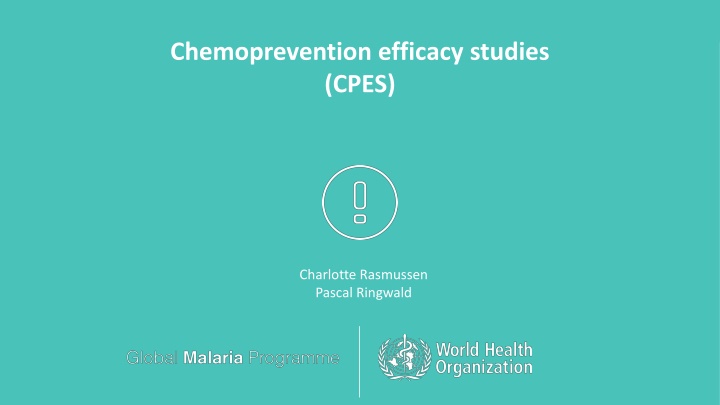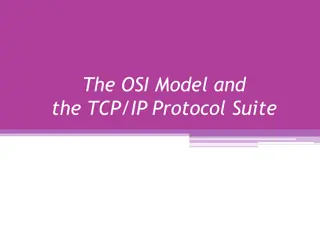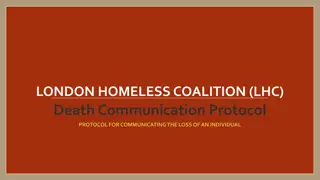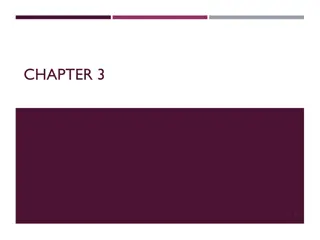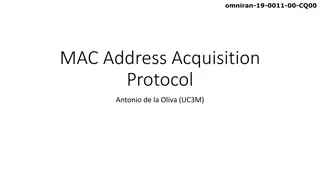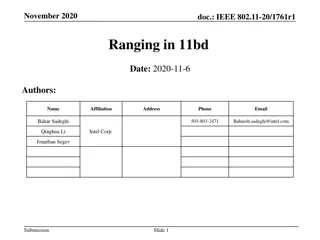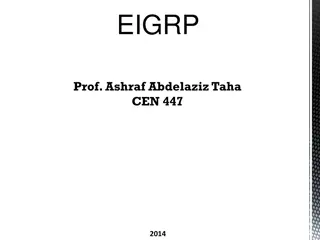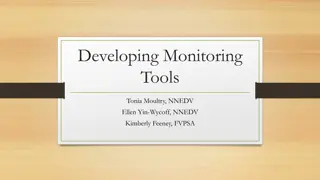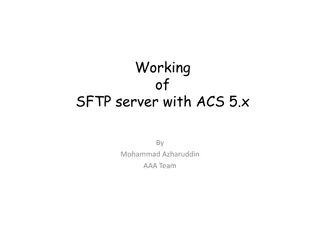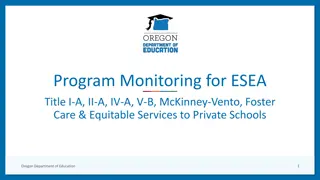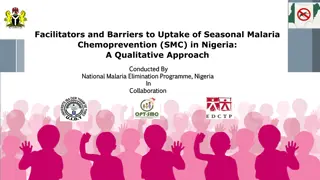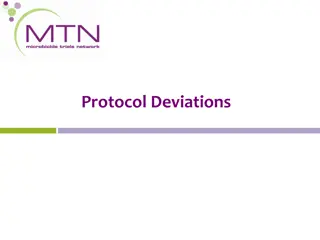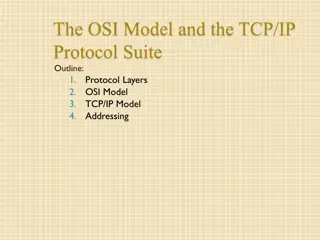Monitoring Chemoprevention Efficacy: Draft CPES Protocol
Contextual guidelines are being reviewed for expanding chemoprevention interventions, highlighting concerns over resistance and efficacy. Therapeutic Efficacy Studies (TES) play a crucial role in monitoring treatment outcomes, but molecular markers of resistance are imperfect predictors of chemoprevention efficacy. The Draft CPES Protocol outlines key requirements for studying chemoprevention efficacy, emphasizing the need for standardized protocols and comprehensive data collection procedures to inform policy decisions.
Download Presentation

Please find below an Image/Link to download the presentation.
The content on the website is provided AS IS for your information and personal use only. It may not be sold, licensed, or shared on other websites without obtaining consent from the author.If you encounter any issues during the download, it is possible that the publisher has removed the file from their server.
You are allowed to download the files provided on this website for personal or commercial use, subject to the condition that they are used lawfully. All files are the property of their respective owners.
The content on the website is provided AS IS for your information and personal use only. It may not be sold, licensed, or shared on other websites without obtaining consent from the author.
E N D
Presentation Transcript
Chemoprevention efficacy studies (CPES) Charlotte Rasmussen Pascal Ringwald
Context Guidelines for chemoprevention interventions are currently being reviewed Use of chemoprevention is likely to be further expanded in coming years In some countries there has a relatively low uptake of chemoprevention; one of the reasons sited is concerns over resistance and efficacy
Drug efficacy Drug efficacy: Capacity of an antimalarial medicine to achieve the therapeutic objective when administered at a recommended dose, which is well tolerated and has minimal toxicity Poor drug quality Comorbidities Poor Immunity adherence Drug efficacy Incorrect dosage Resistance Pharma- cokinetics Factors affecting efficacy
Efficacy studies Therapeutic Efficacy Studies (TES) Follow-up and procedures in accordance with standard protocol Gold standard for monitoring treatment efficacy to inform treatment policy Follow-up group of patients with uncomplicated malaria to monitor treatment outcome WHO recommends that TES are done in sentinel sites at least once every 2 years Supplemented by information on molecular markers of resistance Information on treatment efficacy cannot be used as a surrogate for chemoprevention efficacy Molecular markers of drug resistance are a useful but imperfect tool of predicting the efficacy of chemoprevention strategies Need to establish a standard protocol to monitor efficacy of chemoprevention
Draft CPES protocol Provide information on the parasitaemia during follow-up period Collect data comparable across location and time of a good enough quality to inform policy Studies that can be done on a routine basis Key requirements of a protocol to study chemoprevention efficacy Individuals with no malaria symptoms eligible for a given chemoprevention as per the recommendations Study population Sufficient number of individuals targeted for the chemoprevention intervention in the site to make reaching a targeted sample size feasible Trained, motivated personnel capable of recruiting and following up study participants, collecting samples and providing malaria treatment as needed Availability of facilities to store samples and supplies securely, and stain slides Information on the local epidemiology of malaria Site section criteria include Study participants identified with asexual parasitaemia by microscopy during follow-up period from day 4 to day 28/42 Main study outcome Days to reported failure Prevalence of molecular marker(s) of resistance to chemoprevention drug(s) at Day 0 and in any parasites detected after Day 4 Additional study outcomes include
Key aspects of the draft CPES protocol 21 7 28 0 1 2 14 DAYS Follow-ups Study participant identified as having malaria at enrolment or during follow-up, must receive treatment as per the national treatment guidelines Clinical malaria Supervision of treatment All medicine must be given under direct supervision Follow-up period 28/42 days after start of chemoprevention administration with a drug with a short half-life Days of participant follow- up Weekly follow-up days (Days 7, 14, 21, 28..) + any day that study participants have symptoms Reinfection/ recrudescence markers Blood collected on day 0 and day of failure to be analysed for markers of new infection /recrudescence . Analysis of markers of drug resistance in DBS collected on day 0 for study participants with parasitaemia Analysis of markers of drug resistance in DBS collected for study participants with parasitaemia during follow-up Drug resistance markers
System of resistance and efficacy surveillance Molecular markers Drug Gene Mutation 4-aminoquinolines Chloroquine Chemoprevention efficacy surveillance needs to be part of a wider system of resistance and efficacy surveillance that also includes: Surveillance of molecular markers Therapeutic efficacy studies Pfcrt K76T + different sets of mutations at other codons (including C72S, M74I, N75E, A220S, Q271E, N326S, I356T and R371I) Pfmdr1 (in combination with Pfcrt mutations only) Yet to be validated N86Y, Y184F, S1034C, N1042D and D1246Y Amodiaquine (mannich base) Studies show that amodiaquine selects for Pfmdr1 mutations Piperaquine Pfpm2 3 Pfpm2 3 increased copy number Pfcrt Detected in vivo: T93S, H97Y, F145I, I218F, C350R Detected in vitro: T93S, H97Y, F145I, I218F, M343L, G353V Antifolates Pyrimethamine Pfdhfr N51I, C59R, S108N and I164L Sulfadoxine Pfdhps S436A/F, A437G, K540E, A581G and A613T/S Proguanil Pfdhfr A16V, N51I, C59R, S108N and I164L Amino-alcohols Lumefantrine Yet to be validated Studies show that lumefantrine selects for Pfmdr1 mutations (N86) Mefloquine Pfmdr1 Pfmdr1 increased copy number Quinine Yet to be validated Mannich base Pyronaridine Yet to be validated Naphthoquinone Atovaquone Pfcytb Y268N/S/C Sesquiterpene lactones Artemisinin and its derivatives PfK13 List of candidate and validated markers developed
Next steps Partners are planning to implement studies of chemoprevention efficacy Lessons learned from these studies and well work ongoing with statisticians will be used to adjust the protocol An updated document on surveillance of antimalarial drug efficacy is planned this year and will include: Therapeutic efficacy studies Integrated drug efficacy studies, and Chemoprevention efficacy studies.
